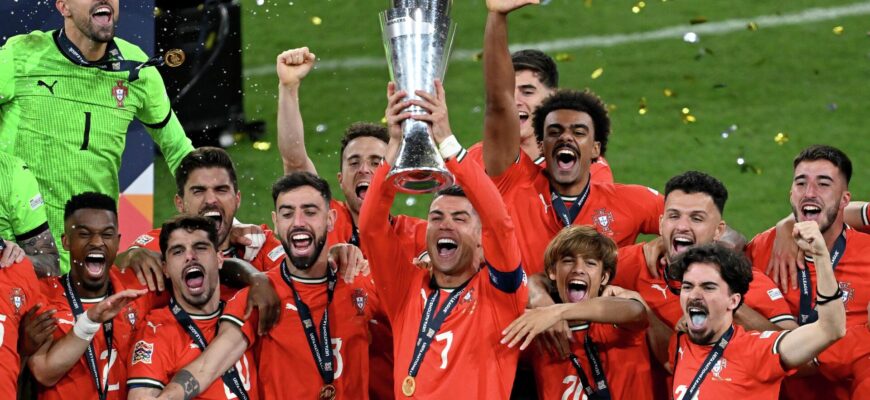In the often-complex world of professional football governance, a significant transition has unfolded in Portugal. The Liga Portugal, the orchestrator of the nation`s top two football divisions, has officially inaugurated its new Board of Directors for the 2025-26 season. While such ceremonies might typically be viewed as routine administrative affairs, the context surrounding this particular swearing-in points to a period of profound strategic transformation for Portuguese football.
A Diverse Collective at the Helm
The formal ceremony, presided over by Comendador António Saraiva, President of the General Assembly, took place at the Liga Portugal Arena in Porto. This new directorial body is not merely a collection of individuals but a carefully curated cross-section of the league`s diverse landscape. Leading the charge is Liga Portugal President Reinaldo Teixeira, complemented by Rui Pereira Caeiro, representing the overarching authority of the Portuguese Football Federation (FPF).
Crucially, the board’s composition reflects a deliberate inclusion of club representatives from both the elite Liga Portugal Betclic and the competitive Liga Portugal 2 Meu Super. This collaborative structure aims to ensure a broad spectrum of perspectives, recognizing that decisions made at the top directly impact clubs across all tiers.
- From Liga Portugal Betclic: FC Alverca, FC Porto, SL Benfica, Sporting CP, and Vitória SC.
- From Liga Portugal 2 Meu Super: CD Feirense, Leixões SC, and Marítimo M.
Supporting this elected body are the executive directors André Mosqueira do Amaral, Susana da Silva Curto, Paulo Costa, and Paulo de Mariz Rozeira, forming the operational backbone that will translate strategic visions into tangible actions.
The Central Challenge: Unlocking Audiovisual Rights
While discussions in boardrooms can often veer into a labyrinth of minutiae, the primary mandate for this new leadership is strikingly clear and singularly impactful: the Centralization of Audiovisual Rights. This isn`t merely a bureaucratic term; it represents the most significant structural reform currently underway in Portuguese professional football.
Historically, Portuguese clubs have negotiated their television rights individually, a system that has, arguably, widened the financial chasm between the biggest clubs and the rest. The shift to a centralized model promises a more equitable distribution of broadcast revenues, a move anticipated to bolster the financial stability of smaller clubs, enhance competitive balance across the leagues, and ultimately, elevate the overall quality and global appeal of Portuguese football. It’s a complex undertaking, fraught with negotiations and competing interests, but one deemed absolutely vital for the league’s sustainable growth. The success of this initiative will largely define the legacy of this new board.
Strategic Foundations and Future Horizons
The new board wasted no time getting to work, holding their inaugural meeting on the very afternoon of their official swearing-in. No doubt, the discussions were robust, focusing intently on the strategic priorities that will guide their mandate for the upcoming season. These priorities, while not fully detailed publicly, are intrinsically linked to the successful implementation of the audiovisual rights centralization and the broader development of the league.
Furthermore, the article also notes the selection of a new composition for the Board of Directors of the Foundation of Football, which will soon take office. This parallel development underscores a comprehensive approach to governance, recognizing that the league`s health extends beyond just the competitive field to encompass broader societal and developmental roles.
A New Chapter for Portuguese Professional Football
The inauguration of Liga Portugal`s new Board of Directors signals more than just a change in personnel; it marks a decisive step into a critical phase for Portuguese football. With a clear and challenging objective—the centralization of audiovisual rights—at the forefront, the new leadership team faces the significant task of navigating complex reforms that promise to reshape the league`s financial landscape and competitive dynamics for years to come. The stakes are high, but the potential rewards for the entire footballing ecosystem in Portugal are equally substantial. The journey ahead is certainly not a ceremonial stroll.








